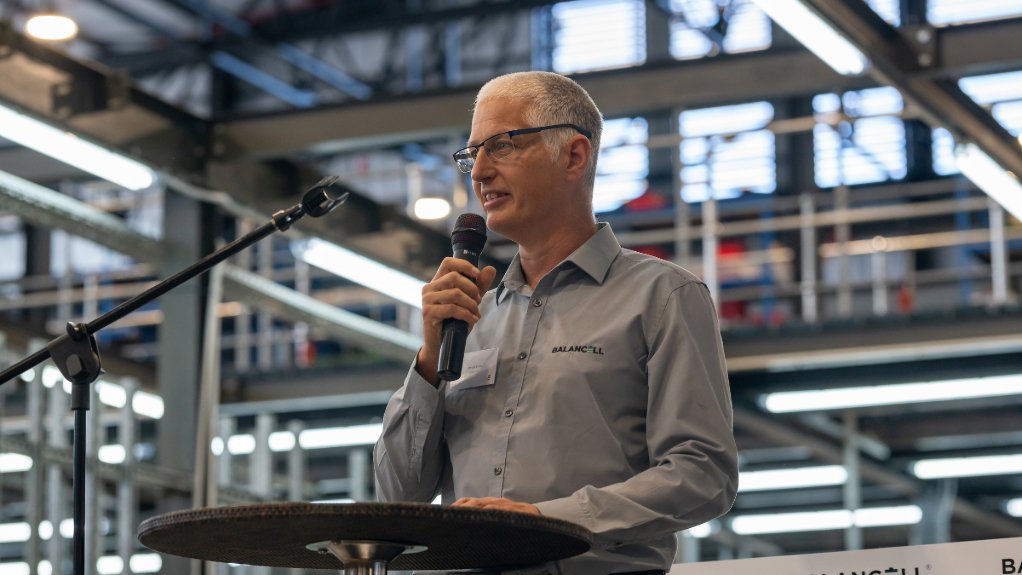Energy storage company Balancell has cut the ribbon on its new R80-million assembly plant in Ndabeni, Cape Town.
The lithium ferro-phosphate battery assembler’s previous facility was limited to 250 MWh capacity a year, with the new operation scaled up to 1 GWh.
“This is big enough to reach economies of scale and to actually be in the game,” says founder and CEO Dr Ian de Vries.
Lithium ferro-phosphate batteries are generally regarded as more stable and less temperature sensitive within the world of lithium chemistry, and are currently also cheaper than the traditional lead-acid batteries, he notes.
Balancell’s expansion project is driven by strong demand for energy storage products locally and globally, with the company also pushing into the rest of Africa and Europe.
Balancell’s biggest customer is Toyota Material Handling, a subsidiary of CFAO in South Africa, with demand for stationary energy storage solutions from the commercial and industrial market also growing at a rapid pace.
The company’s local content ranges between 35% and 45% (of value), with everything except the cells made locally.
Balancell employs around 70 full-time staff directly and around 1 500 people indirectly within the value chain, says De Vries.
He notes that the company’s biggest competitors are battery importers, with South Africa’s five big battery assemblers now whittled down to three in the face of Chinese imports “flooding the market – dumping, in actual fact”.
“We are probably 5% of the market, with 95% of batteries coming in from China.”
De Vries says these batteries come in at zero duties, adding that they often fail to deliver on their promised lifecycle.
“We have been trying to canvas government to levy import duties on assembled batteries.
“South Africa will probably never be able to make the actual cells, but we can produce the whole battery, and create a tremendous amount of jobs doing so.”
“It’s also about standards and certification,” adds De Vries.
“We need to make sure that the batteries that come in are of the right quality so that we can protect the South African economy and the South African consumer.
“There must be legislation that demands that all batteries must meet certain standards, and that they must be tested locally.
“This will save a lot of people a lot of money, as a lot of batteries are not reaching the lifetime promised by their importers. We have a lot of fly-by-nights in the industry at the moment.”
Edited by: Creamer Media Reporter
EMAIL THIS ARTICLE SAVE THIS ARTICLE
ARTICLE ENQUIRY
To subscribe email subscriptions@creamermedia.co.za or click here
To advertise email advertising@creamermedia.co.za or click here













